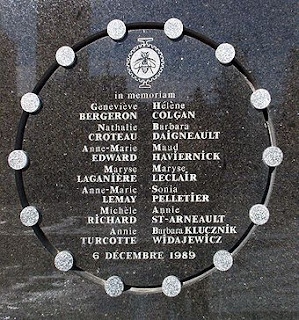I love punk music.
There is an ongoing theme of isolation and justified outrage combined with crass, irreverent humour that appeals to pretty much every part of me. Many bands have songs about personal experiences with mental illness or of being labelled as crazy (The Ramones, Suicidal Tendencies, DRI, L7 to name a few). This music - along with other heavy, hard or weird music of the ‘80s and ‘90s - was my lifeline as I stumbled through adolescence. Today, it is still my go to music when I feel overcome by frustration, anger or stress. There’s nothing quite so cathartic as belting out “You can’t bring me down” by Suicidal Tendencies.
But the problem is that punk music doesn’t love me.
When I was fourteen I remember watching a video of some live punk show in which the male lead singer pulled a woman onto the stage and punched her.
That was when I learned that my beloved punk scene was no safer for me as a woman than anywhere else.
The misogyny and homophobia, both overt and implied, is so rampant in punk music that I quickly grew weary of trying to find new bands. These days at least I can search online for lyrics and get a sense of their overall vibe but in high school the best I could do was borrow tapes from friends and fervently read the liner notes.
Mostly I look for bands that don’t have more than one or two objectionable songs, for example Suicidal Tendencies is not bad but only if I don’t listen to this song. Occasionally I find a band that is persistently offensive but has one or two songs that standout; Dayglo Abortions has very little to recommend them lyrically (this, for instance) – sad because their sound is kickass – but I can’t get enough of rocking out to “Homophobic, sexist cokeheads”. Often the best I can hope for is that they don’t make me want to punch them.
But every once in a while there’s some ray of light like Liza and Louise by NOFX. When I was sixteen and newly out I was hanging out in the skate shop, looking through the 45”s when I saw this.
Without hesitation I bought it and instantly fell in love. Who knew that a bunch of straight dudes could write a song about lesbians that was actually about lesbians and not some porn fantasy for the male gaze (or ear as it were).
My relationship to punk music is complicated to say the least.
And this brings me to something that many people I follow on Twitter have been discussing lately, namely that Chris Brown’s violence against Rihanna is being held up as evidence of the misogyny in rap culture. This black rap artist is being held up as the poster boy for male violence while Charlie Sheen (to name only one example) manages to skate right past his history of abuse. Even when you compare those two narratives there are telling differences in how people explain the two men’s behaviour. Charlie Sheen’s offensive behaviour was due to his addictions and mental health while Chris Brown’s is due to his involvement in hip -hop culture – a convenient shorthand for blackness.
I have heard many black feminists talk about their love of hip-hop and the ways in which it is complicated by the misogyny so often lamented by mainstream white feminists and pop culture commentators alike.
And this is where my love of punk and a black feminists’ love of hip hop meet and shake hands.
What is it about punk music and rap music that makes them so hostile towards women? Is it the male bravado? Is it the blackness? Is it the anarchy?
No, decidedly and absolutely not.
Because the misogyny and homophobia we find in these genres is not what sets them apart from mainstream culture, it is the thing that ties them to it.
There are many things that define what rap and punk are: they both arose out of a sense of disaffection and alienation from the larger culture, at their core they are both about speaking truth to power and refusing to be defined or confined by a classist, racist society. The one thing about them that is not unique is the way in which they both often wind up reinforcing cultural hostilities against women, queers and other marginalized groups. The problem isn’t that they’ve stepped too far out of the dominant culture but that they have not stepped far enough.
So yes I love punk music and I like a lot of rap music, what I don’t love is the fact that so many of its creators have utterly failed to see how their regurgitation of objectifying, hateful and outright violent attitudes towards women is aligning them with the very system against which they so passionately speak out.
So before you throw the baby out with the bath water, remember that there is no corner of our culture that isn’t home to someone spewing hateful bullshit. And the best thing we can do is not to say “This corner sucks, I’m going back to the centre” but to stay put and point out just how naked that punk ass emperor is.
I love my punk, and no amount of hostility from the macho men involved will keep me from it.
Women who rock, 10 essential punk songs
http://punksexism.wordpress.com/
Violence and Punk Musichttp

